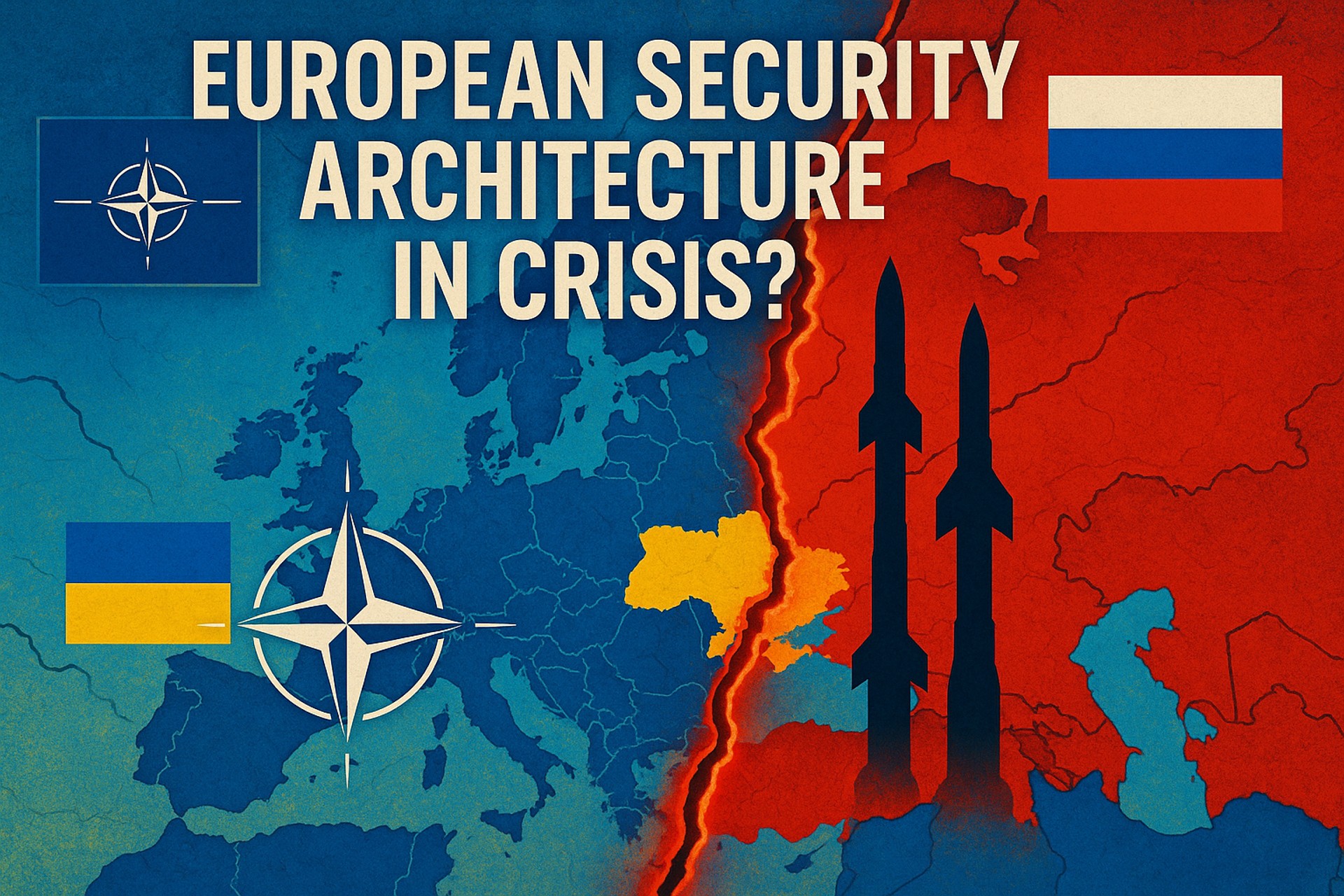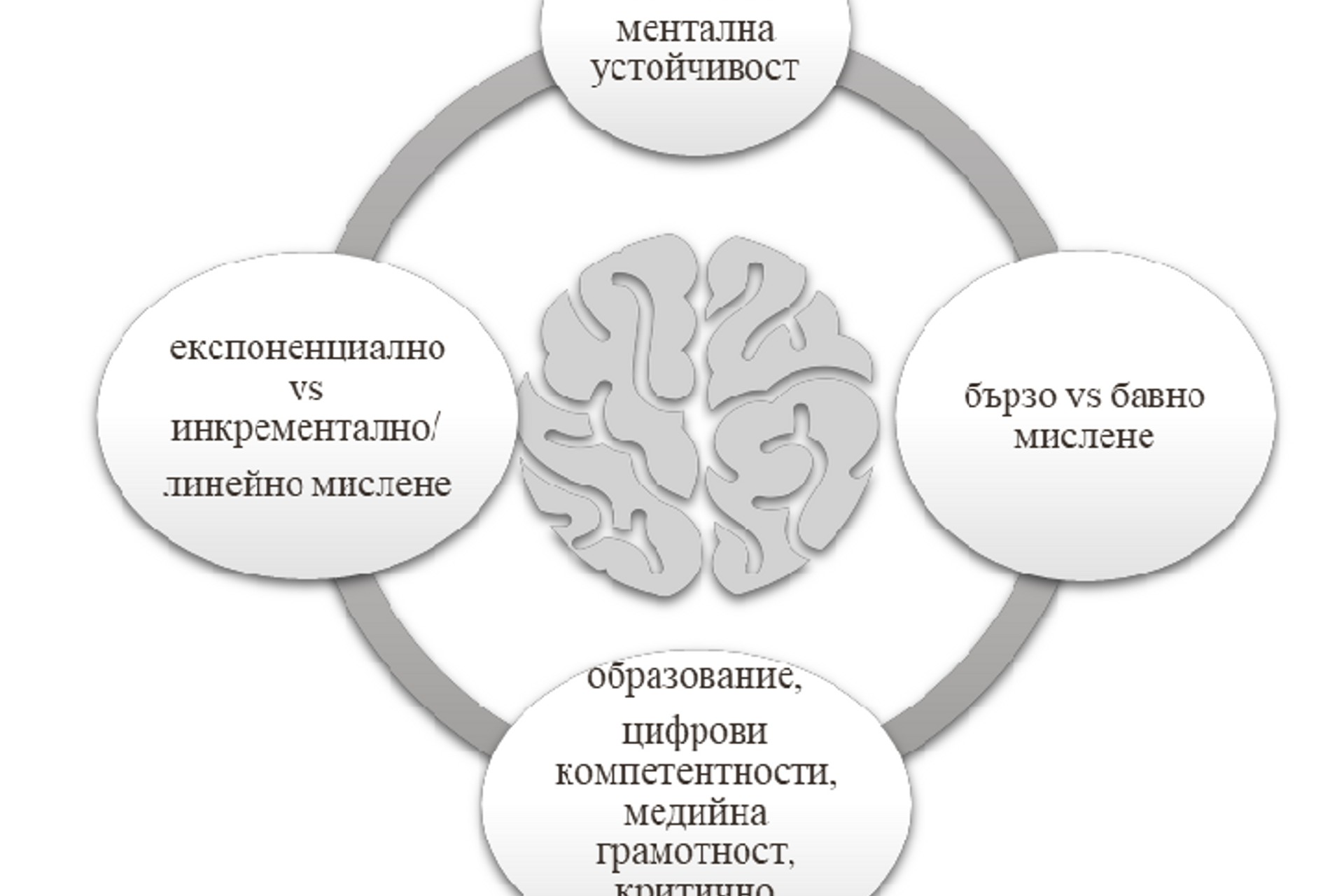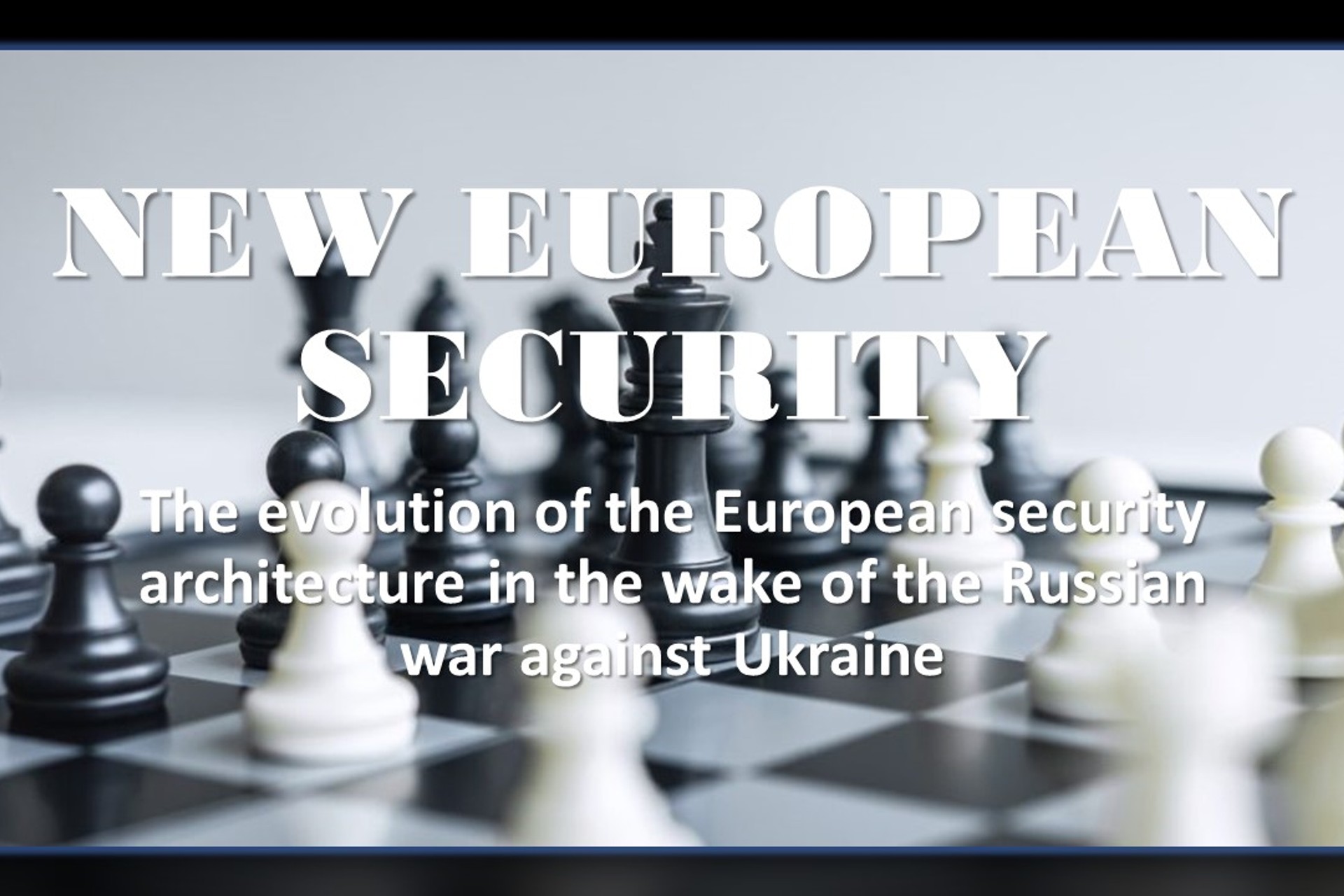Global Challenges
Global Challenges

"EUROPEAN SECURITY ARCHITECTURE IN CRISIS?"
On April 15, 2025, a roundtable discussion titled “Is the European Security Architecture in Crisis?” was held in the “Egg” Hall at Sofia University’s Rectorate. The event was co-organized by the Master's Program in International Security at the Faculty of Law, led by Associate Professor Dr. Mira Kaneva, and the Master's Program in Crises, Conflicts, and Diplomacy in Global Politics at the Faculty of History, led by Associate Professor Dr. Boris Stoyanov. Special guest speakers included Yordan Bozhilov, Chairman of the Sofia Security Forum and former Deputy Minister of Defense, who outlined the future of European security architecture through the lens of Bulgaria; Dr. Plamen Dimitrov from the Bulgarian Geopolitical Society, who analyzed European security between Putin’s revisionism and Trump’s unpredictability; and Associate Professor Dr. Hristo Hristov, an EU Law lecturer at the Faculty of Law, who discussed the prospects for strengthening the EU's defense readiness. In the second part of the discussion, two student teams from the International Security Master's Program presented the results of their group research. Todor Mihaylov introduced the report “Autonomy in European Security – Can Europe Become Independent from the U.S. in Defense?”, co-authored with Simeon Krushev and Nikolay Slavkov. Their analysis focused on Europe’s dependency in key military capabilities, NATO’s role, options for enhancing EU defense autonomy, and the future of transatlantic relations. Verginia Petrova presented the report “China’s New Economic and Strategic Approach to Europe”, prepared with Iva Veselinova, Kristina Mincheva, and Yoanna Ognyanova. The report examined challenges to the EU's economic resilience, digital security, and strategic autonomy, and proposed a model of selective partnership with China. Their presentations sparked lively debate among students from both master’s programs, doctoral candidates in International Relations Denitsa Kovacheva and Nikola Peykov, and other guests. Discussions focused on security threats in the Black Sea region and the Western Balkans, the global commitments of the U.S. and EU, and hybrid threats such as algorithmic radicalization and anti-democratic propaganda.
Event
Global Challenges
Security and Defense
European Union

EUROPEAN SECURITY ARCHITECTURE IN CRISIS?
The material contains two articles: "European Security Autonomy - Can Europe be Independent of the US in the Field of Defense?" and "China's New Economic and Strategic Approach to the EU", which were presented by the authors at a conference held on April 15, 2025 at Sofia University.
Тодор Михайлов, Симеон Крушев, Николай Славков, Илияна Аризанова, Вергиния Петрова, Йоанна Огнянова, Кристина Минчева, Ива Веселинова
Article
Global Challenges
Security and Defense
European Union
NATO

SECURITY RISKS AND CHALLENGES IN THE BLACK SEA REGION
Talking points for the EU Institute for Strategic Studies
Yordan Bozhilov
Brief
Global Challenges
Balkans and Black Sea
Security and Defense
European Union
NATO

INTERNATIONAL PEACE AND SECURITY: DYNAMICS IN THE EURO-ATLANTIC AND INDO-PACIFIC REGIONS
International Workshop organizes by the Sofia Security Forum and the Islamabad Policy Research Institute (IPRI)
Event
Global Challenges
Security and Defense

BUILDING RESILIENCE IN THE EUROPEAN UNION IN TIMES OF POLYCRISIS AND CHALLENGES IN THE COGNITIVE DOMAIN
This aim of this publication is to draw attention to the need to build resilience in the societies and Member States of the European Union in times of “polycrisis” and challenges in the cognitive domain. Following an analysis of global risks and hybrid threats, as well as the emergence of artificial intelligence in today‘s communication and security environment, certain recommendations and conclusions are drawn to enable the EU to exploit its potential to be a “multidimensional power”, overcoming non-kinetic challenges to vulnerabilities in democratic societies, citizens‘ minds and emotions. In this research, a range of political science analysis methods were employed. In addition, the “mind maps” technique of the British psychologist Tony Buzan was implemented by enabling the synthesis of ideas through visual representations. On the eve of the European elections in 2024, the publication draws key conclusions and recommendations for overcoming the challenges of desinformation, perception management and psychological manipulation, which undermine trust in democratic institutions and prevent decisionmakers from countering them. These include: building resilience through education, media literacy, critical thinking, digital competencies, mental toughness; the ability to think not only fast but also slow; the application of exponential design to strategic thinking; multilateralism and close cooperation with NATO. https://www.ceeol.com/search/article-detail?id=1215198
Assist. Prof. Monika Panayotova, PhD, Vice President of the Sofia Security Forum
Book
Global Challenges
Cyber Security and New Technologies
European Union
NATO

NEW EUROPEAN SECURITY-The evolution of the European security architecture in the wake of the Russian war against Ukraine
A Decade of Change: Europe's Security Landscape under Scrutiny. With the second anniversary of Russia's aggressive incursion into Ukraine on February 24, 2024, it is crucial to reflect on the profound impact this conflict has had on Europe's security dynamics. The invasion served as a catalyst for a significant reassessment of Europe's security architecture. With Russia's actions prompting a fundamental shift in strategy towards deterrence and defense, it's imperative to address several pressing questions: - Redefining Security Architecture: The Russian assault sparked intense debate about the future of European security. Are we witnessing the dawn of a new era of strategic competition reminiscent of the Cold War? And how united is Europe in its approach to collective defense? - Insights from Central and Eastern Europe and the Balkans: Esteemed experts from across the region offer diverse perspectives on the current state and future trajectory of European security. Despite varying viewpoints, many nations stand in solidarity with Ukraine, advocating for deeper integration and a more sustainable security framework for Europe. - NATO's Vital Role: NATO emerges as a linchpin for collective defense, especially following its expansion to include Finland and Sweden. Across the board, states denounce Russia's aggressive posturing and underscore NATO's indispensable role in ensuring regional security. - Navigating Challenges and Prospects: Russia's role within the European security paradigm remains contentious. Consensus dictates the need for a new security framework that addresses both conventional threats and emerging challenges such as disinformation campaigns. - Championing Democratic Values: The years ahead will be marked by a concerted effort to rally support for democratic principles and the rules-based international order. Revitalizing engagement with international treaties and institutions is not just in Europe's interest but crucial for global security. As we solemnly mark the second anniversary of Russia's incursion into Ukraine, it serves as a poignant reminder of the pivotal juncture at which Europe finds itself in terms of security and stability.
Yordan Bozhilov, Mira Kaneva
Book
Global Challenges
Security and Defense
NATO
